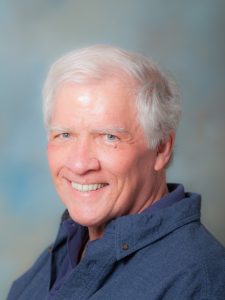 Hi, I’m Dean. No, Dean is not my job title, but my first name. I know it causes lots of confusion, especially at the university where I work. It doesn’t help matters that I spell out my middle name. You see, my father’s given name was Dean and my stepfather’s was Keith (by clairvoyant coincidence), and so I’ve retained both. Alas! I’ve actually had people introduce me at conferences and conventions as Keith Simonton, wanting to be informal and deciding (incorrectly) that they might best “drop the title.” I also get phone calls from people wishing to speak to the “Dean of Psychology.” It’s such a nice title, however incorrect (and sans any salary increment), that I once decided to have it placed next to my o
Hi, I’m Dean. No, Dean is not my job title, but my first name. I know it causes lots of confusion, especially at the university where I work. It doesn’t help matters that I spell out my middle name. You see, my father’s given name was Dean and my stepfather’s was Keith (by clairvoyant coincidence), and so I’ve retained both. Alas! I’ve actually had people introduce me at conferences and conventions as Keith Simonton, wanting to be informal and deciding (incorrectly) that they might best “drop the title.” I also get phone calls from people wishing to speak to the “Dean of Psychology.” It’s such a nice title, however incorrect (and sans any salary increment), that I once decided to have it placed next to my o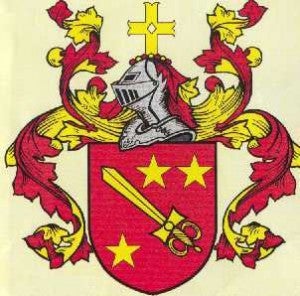 ffice door! Anyhow, I consider “Dean Keith” taken together to constitute my first (given) name, and “Dean” to represent my “nickname.” Sorry: Deanie or Dino not allowed! Some students have opted to call me “Dr. Dean” – which I actually think somewhat cool!
ffice door! Anyhow, I consider “Dean Keith” taken together to constitute my first (given) name, and “Dean” to represent my “nickname.” Sorry: Deanie or Dino not allowed! Some students have opted to call me “Dr. Dean” – which I actually think somewhat cool!
Now three points about my surname.
First, the name apparently originated when King Robert the Bruce (1306-1329) conferred the town of Symington (“Symons Town”) upon a certain Thomas as a reward for the latter’s service in the Scottish Wars of Independence (depicted so graphically in Mel Gibson’s Braveheart). Thus assuming the name Thomas of Symington, he became the family’s progenitor. The village still exists in Lanarkshire, Scotland, and in the summer of 2006 it was the location of an extended-family reunion celebrating the 700th anniversary of the surname’s beginnings. According to the 1891 Scotland Census records, 57% of Lanarkshire families had the Symington surname – and another 29% were named Simington! Virile genes! By the way, the family coat of arms has the following symbolism: red field = the color of Valor; two yellow stars = symbols of Honor and Constancy; double-handed sword = Strength, Might and Justice. Nothing about Genius, Creativity, or Leadership! Wrong ancestor?
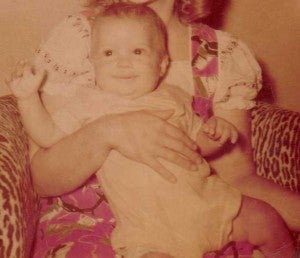
Second, since the name’s origination it has acquired many different spellings, including my own. My version of the name is pronounced with a long i in the accented first syllable (as “sigh”) and with no “ing” in the second syllable (i.e., rhyming with “fun”). I have no idea how the middle syllable came to be pronounced differently from the original surname. However, it does represent a reversion to Symons Town.
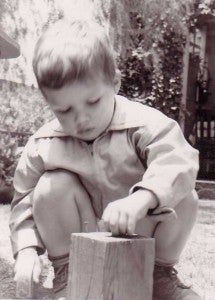 Third, the Simonton Simonton is by no means a common name anywhere outside Scotland. According to the 1990 Census, its frequency was only around 0.001%, making it the 8,347th “most popular” surname in the United States. Not surprisingly, the Encyclopedia of American Family Names does not even list it! Some Simontons have devoted considerable effort to teasing out the lineage, and it seems that many if not all of those who carry that last name were descended from the same immigrant who arrived in the English colonies sometime in the mid-18th century. Hence, presumably the person after whom Simonton Street is named (in Key West, Florida) can count as a distant relative, along with the oncologist Carl Simonton, the feminist Ann Simonton, the founder of Simonton Windows, and the mid-19th century immigrant for whom Simonton, Texas, named. But that’s about as far as my knowledge goes. My paternal grandfather, Prescott “Max” Simonton, abandoned his wife when my father was very young, creating a serious break in the passing down of family traditions – whatever they might have been. I never met Max, and my dad only did so once very briefly in his entire lifetime.
Third, the Simonton Simonton is by no means a common name anywhere outside Scotland. According to the 1990 Census, its frequency was only around 0.001%, making it the 8,347th “most popular” surname in the United States. Not surprisingly, the Encyclopedia of American Family Names does not even list it! Some Simontons have devoted considerable effort to teasing out the lineage, and it seems that many if not all of those who carry that last name were descended from the same immigrant who arrived in the English colonies sometime in the mid-18th century. Hence, presumably the person after whom Simonton Street is named (in Key West, Florida) can count as a distant relative, along with the oncologist Carl Simonton, the feminist Ann Simonton, the founder of Simonton Windows, and the mid-19th century immigrant for whom Simonton, Texas, named. But that’s about as far as my knowledge goes. My paternal grandfather, Prescott “Max” Simonton, abandoned his wife when my father was very young, creating a serious break in the passing down of family traditions – whatever they might have been. I never met Max, and my dad only did so once very briefly in his entire lifetime.
Now some early biography: I was born in Glendale, CA, a city near downtown Los Angeles and Hollywood, but grew up in the San Fernando Valley. Despite growing up in a working-class neighborhood – my dad was a high school dropout who began on the assemblyline in the aerospace industry and retired as a long-haul trucker – I very early became ambitious, an ambition fueled by my omnivorous reading. As an impressionable youth I encountered the maxim of an obscure 19th-century American (Joel Hawes) that became something of a personal motto: “Aim at the sun, and you may not reach it; but your arrow will fly far higher than if aimed at an object on a level with yourself.” (Fortunately, I had not yet heard of the “Peter Principle” that hints that sometimes you can aim too high: the arrow can then soon puncture the top of your head!)
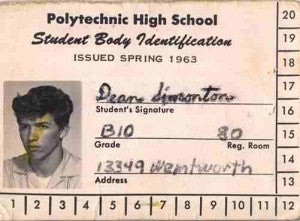 The Hawes saying became fully actualized when I attended John H. Francis Polytechnic High School, the second oldest but largest school in LA (founded in 1897, and moved to its present site in 1957). Besides getting excellent grades – I was the class salutatorian – I was very active in extracurricular actitivies, including student government (“secretary of health and safety,” the nasty speed bumps I had installed in the student parking lot were still there over 40 years later), community service (mostly in association with the Red Cross), rock and jazz groups (as rhythm guitarist), and football (“half back” and some defensive back), but becoming half-time announcer for the marching band and drill team after a nasty knee injury put me on a much more fun and less smelly bus. Some incipient artistic talent seemingly appeared when a pastel still life I did in an art class ended up decorating the Principal’s office! Also about this time I used my minimum-wage earnings as busboy to purchase the first edition of the 54-volume Great Books of the Western World. I immediately began the 10-year reading program presented in Volume 1, which I finally completed on August 29th, 2010 – 45 years later! I guess I’m a very slow reader.
The Hawes saying became fully actualized when I attended John H. Francis Polytechnic High School, the second oldest but largest school in LA (founded in 1897, and moved to its present site in 1957). Besides getting excellent grades – I was the class salutatorian – I was very active in extracurricular actitivies, including student government (“secretary of health and safety,” the nasty speed bumps I had installed in the student parking lot were still there over 40 years later), community service (mostly in association with the Red Cross), rock and jazz groups (as rhythm guitarist), and football (“half back” and some defensive back), but becoming half-time announcer for the marching band and drill team after a nasty knee injury put me on a much more fun and less smelly bus. Some incipient artistic talent seemingly appeared when a pastel still life I did in an art class ended up decorating the Principal’s office! Also about this time I used my minimum-wage earnings as busboy to purchase the first edition of the 54-volume Great Books of the Western World. I immediately began the 10-year reading program presented in Volume 1, which I finally completed on August 29th, 2010 – 45 years later! I guess I’m a very slow reader.
My favorite extracurricular activity in high school was probably drama, where I had a spear carrier part in one production (“Bye Bye Birdie”), supporting roles in two productions (“Heaven Can Wait” and “Lost Horizon”), and the male lead role in a fourth (“Berkeley Square“). Poly’s 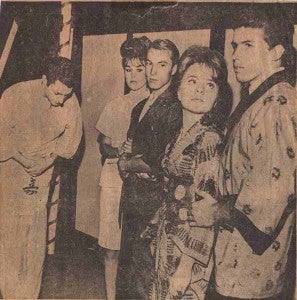 drama director had delivered a few lines as “Lt. Cunningham” in the 1952 What Price Glory, staring James Cagney and directed by John Ford. (Again, coincidentally, my stepfather had conducted the orchestra for Charlie Chaplin’s Limelight that was released the exact same year!) Poly’s drama group – then known as Masque and Sandal (aka Masque and Scandal) – had exceptional ambitions. Besides sometimes renting our apparel from Western Costume Company, we would occasionally spy on the so-called “competition” at Hollywood H.S. just 10 miles away (what a terrible Teahouse of the August Moon! Can phones really ring after picking up the receiver?).
drama director had delivered a few lines as “Lt. Cunningham” in the 1952 What Price Glory, staring James Cagney and directed by John Ford. (Again, coincidentally, my stepfather had conducted the orchestra for Charlie Chaplin’s Limelight that was released the exact same year!) Poly’s drama group – then known as Masque and Sandal (aka Masque and Scandal) – had exceptional ambitions. Besides sometimes renting our apparel from Western Costume Company, we would occasionally spy on the so-called “competition” at Hollywood H.S. just 10 miles away (what a terrible Teahouse of the August Moon! Can phones really ring after picking up the receiver?).
More challenging was my role as captain of the school “knowledge bowl team” – which I eventually led to victory in a televised competition (“Scholarquiz” on LA’s KNXT-TV). The prize? The two-volume Britannica World Language Dictionary (7 languages, including Yiddish!), a high-quality slide rule (what’s that?), and a quart of orange juice! All but the last I still have in my possession (the slide rule as an archeological artifact).
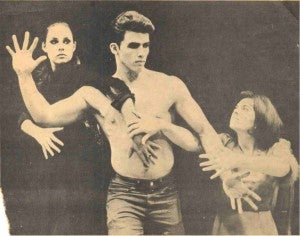 After graduation, a California State Scholarship enabled me to pursue a chemistry major at Occidental College, which had fewer than half as many students as my high school! Coincidentally once more, my stepfather also graduated from both “Poly” and “Oxy”! In any case, while at Oxy I performed in two dramatic productions (“The Maids” and “Chronicles from Hell,” the second of which was broadcast on KCET in LA), and served as coordinator for Red Cross activities on the
After graduation, a California State Scholarship enabled me to pursue a chemistry major at Occidental College, which had fewer than half as many students as my high school! Coincidentally once more, my stepfather also graduated from both “Poly” and “Oxy”! In any case, while at Oxy I performed in two dramatic productions (“The Maids” and “Chronicles from Hell,” the second of which was broadcast on KCET in LA), and served as coordinator for Red Cross activities on the
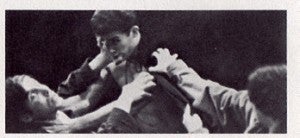 campus (big brother programs, etc.). I also joined a fraternity, Phi Sigma Omicron, which a few years before was part of the national Kappa Sigma. But the chapter had decided to pledge a black student, and was thus forced to go local. After all, this era included the peak of the Civil Rights movement. In fact, Martin Luther King, Jr. delivered an incredibly inspiring speech at Oxy in late 1966, the same year I became a frat bro. Not all fraternities are racist!
campus (big brother programs, etc.). I also joined a fraternity, Phi Sigma Omicron, which a few years before was part of the national Kappa Sigma. But the chapter had decided to pledge a black student, and was thus forced to go local. After all, this era included the peak of the Civil Rights movement. In fact, Martin Luther King, Jr. delivered an incredibly inspiring speech at Oxy in late 1966, the same year I became a frat bro. Not all fraternities are racist!
Did I say “chemistry major”? Yes, indeed, I was chemistry “pre-med.” But in my sophomore year I took Psych 1 as an elective, and by the end of my junior year had changed my career plans! It doesn’t take much to convert a chemistry major to a psychology major! Yet I remain always thankful that I had taken the lower-division courses in mathematics and the natural sciences.
Also when in college I decided to “see the world” (family vacations having been largely confined to water skiing and camping trips in southern and central California, especially the Salton Sea and Millerton Lake).
In my first summer I hitchhiked alone along famed Route 66 from LA to Chicago to visit the Serbian side of my family – my mom’s dad having been 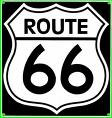 born in Serbia with the surname Merkobrad. I then thumbed across I-80 to San Francisco (through Haight-Ashbury), and from there down 101 to LA. The 5,000 mile solo venture included many unplanned adventures, from being nearly swept away by a flash flood in the Mohave desert (all hail to heavy backpacks) to spending a night sleeping on a bed of cold metal in the Cook County Jail (which has housed such infamous criminals as Al Capone, Richard Speck, and John Wayne Gacy). Between Iowa and Utah, I benefited from the tremendous goodwill of those who practice the Mormon faith. All in all, probably the most risky thing I’ve ever done in my entire personal life! Once I was even given a ride by a highway patrol officer because I was thumbing on a stretch of road where lone hitchhikers had been victims of random crimes. Not all denizens of middle America took kindly to bearded “hippies” even if just passing through.
born in Serbia with the surname Merkobrad. I then thumbed across I-80 to San Francisco (through Haight-Ashbury), and from there down 101 to LA. The 5,000 mile solo venture included many unplanned adventures, from being nearly swept away by a flash flood in the Mohave desert (all hail to heavy backpacks) to spending a night sleeping on a bed of cold metal in the Cook County Jail (which has housed such infamous criminals as Al Capone, Richard Speck, and John Wayne Gacy). Between Iowa and Utah, I benefited from the tremendous goodwill of those who practice the Mormon faith. All in all, probably the most risky thing I’ve ever done in my entire personal life! Once I was even given a ride by a highway patrol officer because I was thumbing on a stretch of road where lone hitchhikers had been victims of random crimes. Not all denizens of middle America took kindly to bearded “hippies” even if just passing through.
The next summer my girlfriend and I rode our pack-laden bicycles with about half-dozen other American teenagers from England (London to Salisbury and Stonehenge, then Brighton), through France (via Dieppe, Rouen, Paris, Chartres, Orléans, Blois, Tours, Toulouse, and Carcassonne), a sidetrip to Spain (Barcelona, where we literally had a rude awakening from Franco’s Guardia Civil!), back briefly to France (Nîmes and the Riviera, including Monaco and Nice), then to Italy (Firenze, Roma, San Marino, Ravenna, Venezia, Milano, and Como), Switzerland (Grindelwald and Luzerne), Germany (Heidelberg, the Rhein to Bonn and Köln), and finally to the Netherlands (Amsterdam). OK, OK, I confess, we put our bikes on a ferry, boat, or train from time to time! Our trip was organized, after all, by American Youth Hostels! My rashly improvised solo adventures were over!
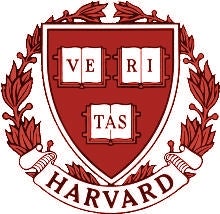 Courtesy of two generous fellowships (National Science Foundation and Danforth), I went straight from Oxy to Harvard University in Cambridge, MA (unlike former President Barak Hussein Obama, who went from Oxy to Harvard via Columbia). There I devoted a considerable amount of time to exploring an environment very different from Southern California – visiting museums, attending concerts, sculling up and down the Charles River, bicycling hither and yon, hiking and backpacking in the Green and White Mountains, and touring the East Coast from Maine to Virginia. Despite the many pleasant distractions, I earned my PhD in Social Psychology four years later, submitting my dissertation while loading up a U-Haul truck to move to my first job at the University of Arkansas (joining the faculty the same year as Hillary Rodham who was not yet Clinton). That’s also when, as a full-time teacher, I could start cancelling off my National Defense Student Loan, all $850 of it. Yep, thanks to the scholarship and the two fellowships, that’s all I owed anybody for 8 years of superlative higher education. Talk about bang for the buck!
Courtesy of two generous fellowships (National Science Foundation and Danforth), I went straight from Oxy to Harvard University in Cambridge, MA (unlike former President Barak Hussein Obama, who went from Oxy to Harvard via Columbia). There I devoted a considerable amount of time to exploring an environment very different from Southern California – visiting museums, attending concerts, sculling up and down the Charles River, bicycling hither and yon, hiking and backpacking in the Green and White Mountains, and touring the East Coast from Maine to Virginia. Despite the many pleasant distractions, I earned my PhD in Social Psychology four years later, submitting my dissertation while loading up a U-Haul truck to move to my first job at the University of Arkansas (joining the faculty the same year as Hillary Rodham who was not yet Clinton). That’s also when, as a full-time teacher, I could start cancelling off my National Defense Student Loan, all $850 of it. Yep, thanks to the scholarship and the two fellowships, that’s all I owed anybody for 8 years of superlative higher education. Talk about bang for the buck!
The remainder of the story is part of my academic vita.
Here are some URLs which will give you a better idea about my interests and values.
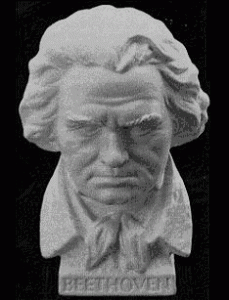
- Music? What could be better than something by Ludwig van Beethoven? My favorite radio station is KXPR, which plays classical music and jazz as well as the live broadcasts of the Metropolitan Opera. I’ve recently become a “Visionary Circle Donor” (whatever that means) to support programing, including the Met.
- Who do I admire? Well, what about Albert Einstein for a starter? Or Charles Darwin? Or Benjamin Franklin or Leonardo da Vinci? When I applied to Oxy it was Franklin who was the subject of the required essay “Who do I most admire and why?” So, in a sense, he got me into college!
- How about a non-English tongue? Try some Spanish! One of the world’s great languages! Although I took Spanish in high school, and turned to German in college, I became a subscriber/student/aficionado of the audiomagazine Puerta del Sol from 1994 until its publication sadly ceased in 2010. Happily, toward the end of 2012 I discovered the new audiomagazine ; puntoycoma through which I hoped to continue my love of Spanish language and culture, despite being eternally stuck at “advanced intermediate” (viz. CEFRL B2-C1). However, if I could just snap my fingers and become at once a fluent reader and speaker, I would select Mandarin. With English, Spanish, and Mandarin, I could converse with over 2 billion human beings!
- What organizations do I support? Many … but among the most important are the Sierra Club (lifetime member), Greenpeace, Sea Shepherd, Nature Conservancy, Wilderness Society, Defenders of Wildlife, National Wildlife Federation, National Audubon Society, National Parks and Conservation Association, Natural Resources Defense Council, California Wilderness Coalition, California State Parks Foundation, Californians Against Waste Foundation, Marine Mammal Center, and Performing Animals Welfare Society.
Here’s something interesting: On the side I do “container junk art.” It’s made of found objects placed within or around old containers. I say it’s “interesting” because when I show my art to people for the first time, that’s what they say, “Interesting!” It’s nice that everyone’s so polite! Little children are somewhat less so, one even braking down in tears at the horrible sight! Some photos available right here.
Oh, yes, I almost forgot: If you want to cozy up to the fireplace to read a good book, try my Origins of Genius: Darwinian Perspectives on Creativity, which was published by Oxford University Press in 1999. It received the William James Book Award from the American Psychological Association. In addition, it was chosen as a selection by the Quality Paperback Book Club (part of the Book-of-the-Month Club) and made the “Recommended Reading” list in Phi Beta Kappa’s Key Reporter. McLaughlin, of the TV program The McLaughlin Group, had this to say “All right, sit back. I’ll give you a little erudition here. Most Original Thinker of 2000, Dean Keith Simonton, author of Origins of Genius, his ground-breaking treatise that links the Darwinian concept of evolution to the social purpose behind genius; a remarkable book in which I’ve personally found great help.” In 2002 the book was translated into Portuguese for a Brazilian edition. It remains one of my most frequently-cited publications according to Google Scholar.
But the author’s pen moves on. My Genius 101 became available in 2009 and immediately received excellent blurbs, and was even the subject of a Newsweek article. Will this replace Origins of Genius as my most popular book? Perhaps so. Or will it be my 2018 The Genius Checklist published by MIT Press? After all, it’s now translated into Spanish, Portuguese, Turkish, Mandarin, and Japanese! More to come …
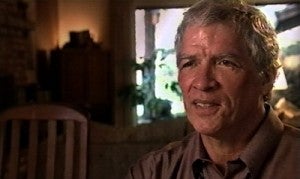 While I’m at it, I might as well mention that my research and writing has acquired considerable media attention over the years.
While I’m at it, I might as well mention that my research and writing has acquired considerable media attention over the years.
I have appeared on TV programs covering genius, creativity, leadership, and talent for the Discovery Channel, the Arts and Entertainment Channel (“The Mystery of Genius”), the Public Broadcasting System (“The Creative Spirit”), CNN (“Anderson Cooper Show”), VPRO in the Netherlands (“Bonobo-bo” pictured at left), the Australian Broadcasting Corporation (on “Lateline”), the other ABC (on “Good Morning America”), the Canadian Broadcasting Corporation (David Susuki’s “The Nature of Things,” Canada’s longest running documentary series), a segment on “late bloomers” for CBS News Sunday Morning, and Sacramento’s CBS local affiliate KOVR (Channel 13 “10 O’clock News”). Most recently, in 2022, I did an episode on “The Mystery of Genius” for The UnXplained with William Shatner for the History Channel, likewise offered my talking head to “Creativity,” a documentary directed by Andrew Winegarner (which won the won Best Documentary Film at the Critics’ Choice International Film Festival), and soloed with Q&A for a live episode on “Are creatives born or made?” at The Garden.
I have also done numerous radio interviews for National Public Radio (“Freakonomics Radio,” “Performance Today,” “The Infinite Mind,” “Whad’Ya Know?,” etc.), eYada.com’s “Psychology Today … Today,” CBC (“Definitely Not The Opera” and “Ideas” programs), Sirius Satellite Radio (“The Good Life Show”), and various NPR, CBS, BBC, BBC Scotland, ABC (Australia), and local radio stations in various English-speaking nations from Australia to Scotland. Also started doing podcast interviews, including “Rationally Speaking,” “What Got You There,” “Bulletproof Radio,” and National Geographic “Overheard.”
Finally, my work has been featured in such print media as Time, Newsweek, US News & World Report, The New Yorker, Psychology Today, Atlantic Monthly, Psychologies, Fortune, Business Week, USA Weekend, Parade Magazine, The Economist, National Geographic, Discover Magazine, Mindful, Elle, Men’s Health, The Chronicle of Higher Education, USA Today, the Associated Press, the Sunday Times, New York Times,Washington Post, Boston Globe, Wall Street Journal, Philadelphia Inquirer, Montreal Gazette, Toronto Star, Ottawa Citizen, Winsor Star, Winnipeg Free Press, Calgary Herald, Vancouver Sun, San Francisco Chronicle, Los Angeles Times, Sacramento Bee, Vallejo Times-Herald, New Scientist, Rice Magazine, and the Harvard Crimsom, internet media like CNN.com, ABCNews.com, NBCNews.com, FoxNews.com, CBSnews.com, LATimes.com, Telegraph.co.uk, HuffingtonPost.com, Miller-McCune.com/www.PSmag.com, NPR.org, PopSci.com, TheWrap.com, Chronicle.com, FiveThirtyEight.com, VoAnews.com (Voice of America News), ZocaloPublicSquare.org, News.Discovery.com, HealthDay.com, Gizmodo.com, and PopPhoto.com, and such non-English vehicles as Der Spiegel, Der Welt, Bilt der Wissenschaft, Nürnberger Nachrichten, Przekroj, Pravda, Super Interessante, Le Scienza, La Vanguardia, Valor Econômico, La Tercera, LeMonde.fr, Science-et-vie.com, Haaretz.com, and Desdeelexilio.com.
YouTube videos:
Genius Definitions | Albert Einstein | What is Creativity? | Diversifying Experiences | Studying Genius
Radio interviews:
Scientific Genius | Genius 101 | Please Explain: Genius
Freakonomics:
How to Be Creative | Where Does Creativity Come From? | A Good Idea Is Not Enough | How to Fail Like a Pro
Podcast interviews:
The Causes of Scientific and Artistic Genius | Intelligence Is Not Enough: Moving into the Genius Zone | Origins of Genius | Science of Genius
Miscellaneous: YourClassical.Org (My Classical Story)
